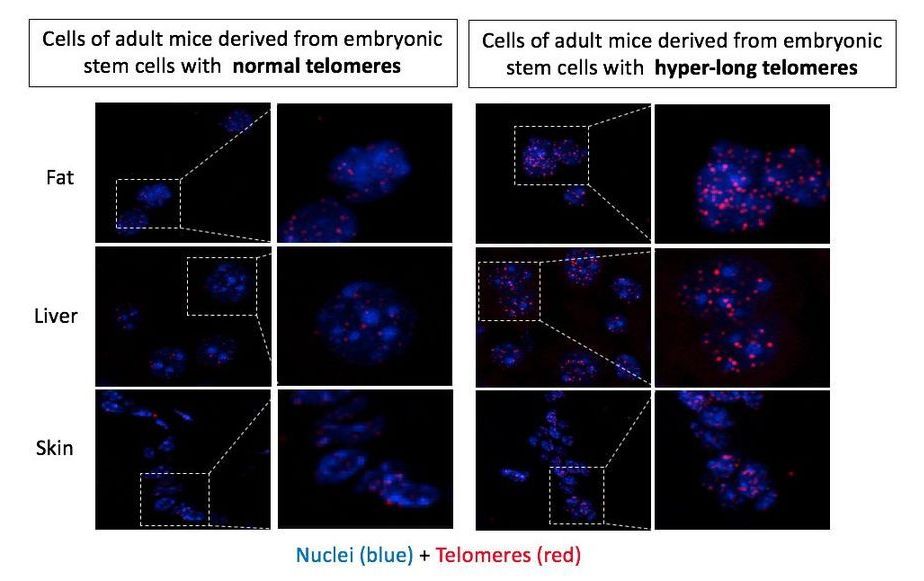A chance finding ten years ago led to the creation by researchers of the Spanish National Cancer Research Centre (CNIO) of the first mice born with much longer telomeres than normal in their species. Given the relationship between telomeres and ageing – telomeres shorten throughout life, so older organisms have shorter telomeres -, scientists launched a study generating mice in which 100% of their cells had hyper-long telomeres. The findings are published in Nature Communications and show only positive consequences: the animals with hyper-long live longer in better health, free from cancer and obesity. The most relevant thing for the authors is the fact that longevity has been significantly increased for the first time ever without any genetic modification.
“This finding supports the idea that, when it comes to determining longevity, genes are not the only thing to consider”, indicates Maria Blasco, Head of the CNIO Telomeres and Telomerase Group and intellectual author of the paper. “There is margin for extending life without altering the genes”.
Telomeres form the end of chromosomes, in the nucleus of each cell in the body. Their function is to protect the integrity of the genetic information in DNA. Whenever the cells divide the telomeres, they are shortened a little, so one of the main characteristics of ageing is the accumulation of short telomeres in cells. “Telomere shortening is considered to be one of the primary causes of ageing, given that short telomeres cause ageing of the organism and reduce longevity”, as the paper published in Nature Communications explains.
